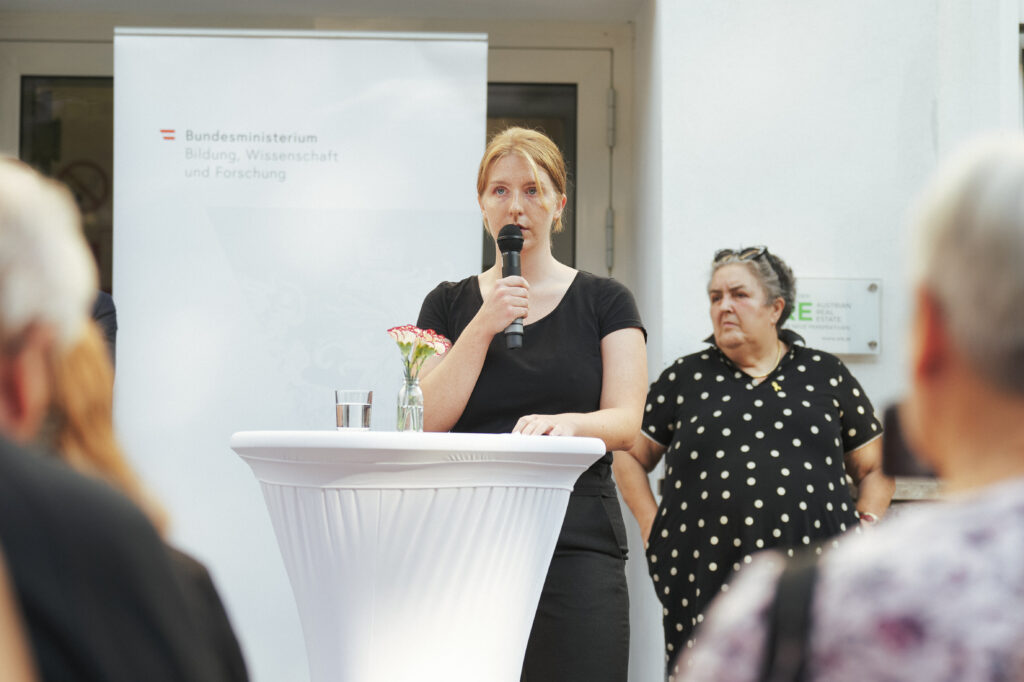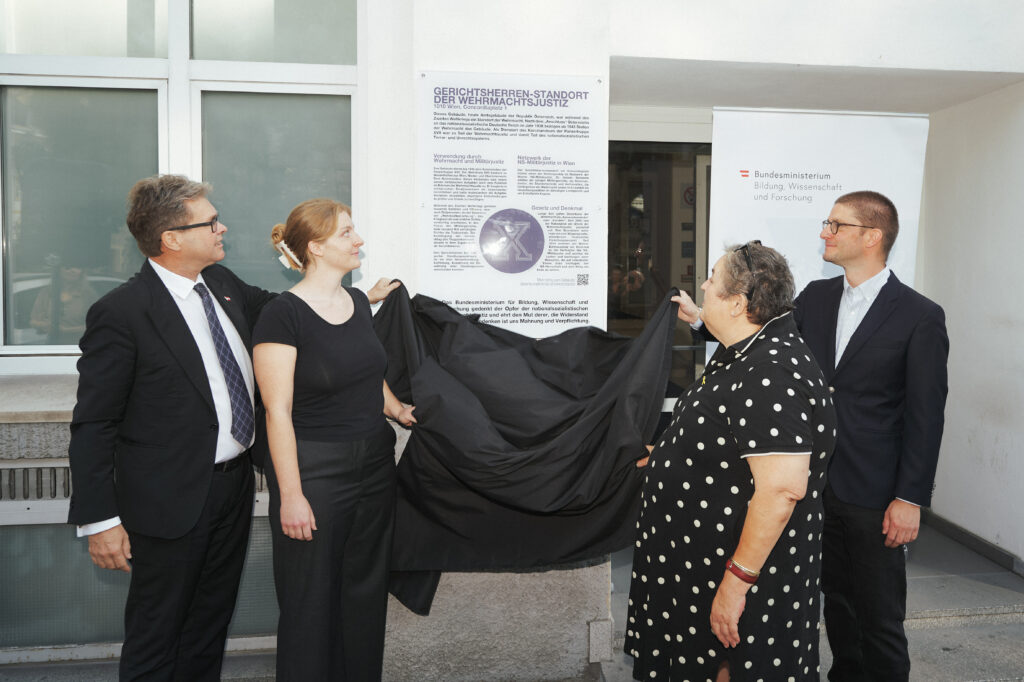MILITARY JUSTICE IN AUSTRIA BEFORE 1938
The basis for military criminal law of the Habsburg Monarchy were the military penal code from 1855 and the military penal procedure code dating back to the reign of Maria Theresa.
Trials against members of the Imperial and Royal Army were characterized by the lack of rights of the defendants. Only in July 1912 was a modern military penal procedure code adapted, which contained elements of the civil penal code, including the possibility of appealing against verdicts. With the beginning of World War I in 1914, the powers of the Austro-Hungarian military judiciary were significantly expanded.
Crimes such as treason, lèse majesté or the disturbance of public order were now tried by military judges, also known as »auditors«. The military judiciary of the Austro-Hungarian Army also served as a political instrument to deter and eliminate opposition – civilians too were tried before military courts. The total number of death sentences meted out by the Austro-Hungarian military judiciary is not known, but is said to have increased considerably between 1914 and 1918. In total, about three million people were court-martialed – this number roughly corresponds to the number of trials carried out by Wehrmacht courts. Within the postwar borders of Austria alone 162,000 cases were tried between 1914 and 1918.
First Republic
The defeat of 1918 brought about the end of monarchy in both Germany and Austria. On November 12, 1918, the democratic Republic of German-Austria was founded. Since the peace treaty of St. Germain prohibited the state’s planned accession to the new German Republic, it was officially renamed »Republic of Austria« on October 21, 1919. The democratic revolutions of 1918/1919 also entailed the end of military justice. A law passed on July 15, 1920 placed all army members under civil jurisdiction. A further law regulated the transfer of employees of the military judiciary to the civil judicial service. These provisions remained in force until 1934. The Austro-fascist dictatorship reintroduced military justice and established a military tribunal. The Austrian Army was used to combat the »enemy within« more and more frequently from the early 1930s on. The primary targets were Social Democrats as well as terrorist National Socialist groups, who were de facto the reason for the reintroduction of military justice.
The path to a “political soldier”
The Catholic-fascist governments under Engelbert Dollfuß and his successor Kurt Schuschnigg found little support in the Austrian public. The government struggled not only with the Social Democrats, who were banned in 1934, but also with the Nazi party, which had been operating illegally since 1934. The party radicalized its agitation to parallel the political developments in Germany: In January 1933, Adolf Hitler had been appointed Reich Chancellor and the National Socialists had dismantled the democratic state within only a few months. Already in May 1933, military jurisdiction was reintroduced; universal conscription applied from 1935 on. The »political soldier«, committing his life to »the leader and the people«, became a model in the German Reich. Leaders of the military judiciary immediately began to adjust military criminal law to the requirements of the planned war. Important instruments to this purpose were the decree on wartime special criminal law and the wartime criminal procedure code, which were both carried into effect shortly before the war began in 1939. Both granted military prosecutors nearly infinite possibilities of taking action against »enemies without and within«. The group of persons considered as such became ever larger as the war progressed.
Austria’s »Anschluss« to the German Reich
The annexation of Austria by the German Reich came as no surprise. At the beginning of 1938, political power had shifted in favor of the National Socialists. On March 11, two days after chancellor Kurt Schuschnigg had announced a referendum on Austria’s independence, the local NSDAP organized large-scale demonstrations in all the provinces, storming and occupying the regional seats of power. That same evening, Austrian president Wilhelm Miklas appointed the National Socialist minister of the interior Arthur Seyß-Inquart chancellor. The marching in of German troops on the morning of March 12 resembled a victory parade. The next day, the cabinet under Seyß-Inquart passed the »Constitutional law on the reunification of Austria with the German Reich«, and on March 15, Adolf Hitler gave a speech on Vienna’s Heldenplatz in front of cheering crowds. The Austrian Army was promptly subordinated to the German Wehrmacht. Within a few days, the new authorities dismissed 14 generals and about 50 staff officers. Until the end of 1938, some 18 percent of Austrian officers were retired, while 1,600 members of the officer corps continued their careers in the ranks of the Wehrmacht. It is to be assumed that Austrian lawyers were incorporated into the judicial apparatus of the Wehrmacht in the same manner.








